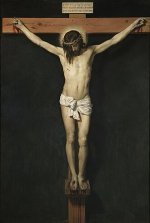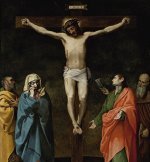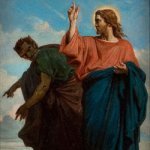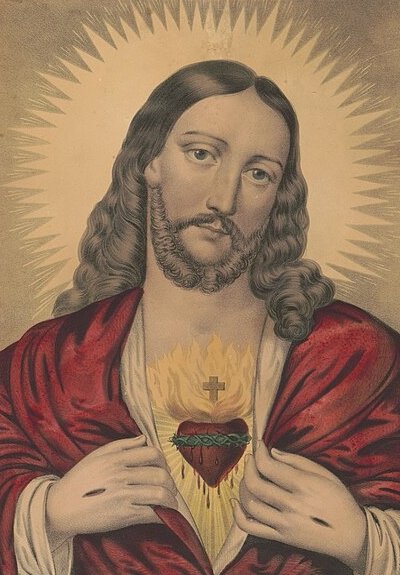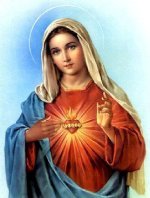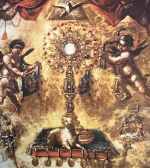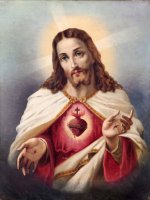"HE MUST INCREASE,
BUT I MUST DECREASE"
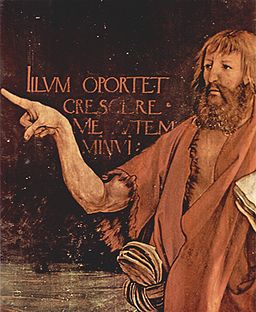
THE FIVE FIRST SATURDAYS IS A DEVOTION NEEDED NOW MORE THAN EVER! FIND OUT MORE HERE
THE SAINT MICHAEL PRAYER AND THE ROSARY
ARE ALSO POWERFUL PRAYERS TO HELP US THROUGH THESE VERY TURBULENT TIMES!
FATHER CHAD RIPPERGER HAS RELEASED A PRAYER FOR THE CONSECRATION OF THOSE GOVERNING TO THE BLESSED VIRGIN MARY
DETAILS (AND THE PRAYER ITSELF) HERE WITH AN UPDATED PRAYER TO OUR LADY HERE
HIGHLY RECOMMENDED! DELIVERANCE PRAYERS,
A BOOK FROM SENSUS TRADITIONIS PRESS
(A GREAT PUBLISHER HELPING US FIGHT OUR MANY SPIRITUAL BATTLES NOWADAYS)!
CHECK OUT OUR PODCAST PAGE AND OUR YOUTUBE CHANNEL FOR INSPIRING CONTENT
THIS WEBPAGE IS ALSO AVAILABLE
AS A PODCAST HERE
In both December and in the beginning of January our liturgical focus includes readings on John the Baptist. As the bridge between the Old and the New Testament, the last of the Old Testament prophets, John is a great model for us from his example of how to combine humility (in how he saw himself) and boldness (in how he stood up for our Lord). These two traits might ordinarily seem to be at odds with each other, but in John’s case they work together quite well.
John gives us his view about his mission in salvation history when he says of himself, while referring to Jesus in St. John the Evangelist’s Gospel, in acknowledging the importance of keeping Christ front and center in his life, “He must increase, but I must decrease” (John 3:30).
This should apply to us as well! Such thinking can also help each of us fight that envy for others that can keep us from seeing and doing God’s will!
Admittedly however, John’s boldness led to his untimely execution after his having been imprisoned for calling out Herod Antipas, the tetrarch of Galilee, for marrying his brother Philip’s divorced wife Herodias in violation of Mosaic law, among other things.
But in this regard John was martyred by speaking truth to power much like our Lord and His apostles, disciples, and many great saints both in that century, the 1st century, and in those that followed!
We see from the very beginning of John the Baptist’s life someone who is truly Christ centered. We read in Luke’s Gospel how John leapt for joy in the womb of his mother Elizabeth, upon hearing the sound of our Blessed Mother Mary’s voice, when Mary came to help her, recognizing our Lord’s presence in Mary’s womb (Luke 1:44).
Upon John’s birth his father Zachary (also known as Zachariah) was inspired to make this glowing prediction about his son in his familiar canticle also found in Luke’s Gospel (1:76-80):
“And you, child, will be called the prophet of the Most High; for you will go before the Lord to prepare his ways, to give knowledge of salvation to his people in the forgiveness of their sins, through the tender mercy of our God, when the day shall dawn upon us from on high to give light to those who sit in darkness and in the shadow of death, to guide our feet into the way of peace."
Along these lines, John the Baptist referred to himself in St. John the Evangelist’s gospel as “the voice of one crying in the wilderness, 'Make straight the way of the Lord,' as the prophet Isaiah said" (John 1:23).
We see John, as recorded in different ways in all four Gospels, preaching “a baptism of repentance for the forgiveness of sins” (Luke 3:3). Such is his devotion to Jesus that when asked if he himself is the long awaited Messiah he responds that he is not but rather “one he who is mightier than I is coming, the thong of whose sandals I am not worthy to untie” (Luke 3:16), namely Jesus!
Nonetheless, John is not shy on calling out those engaged in ungodly practices. He reproaches Pharisees and Saduccees alike for their sense of entitled holiness as children of Abraham by saying God can raise up children of Abraham from stones (Luke 3:8).
John also answers those who ask what they should do, in a thoroughly Christ-like fashion "He who has two coats, let him share with him who has none; and he who has food, let him do likewise." (Luke 3:11)
John also tells tax collectors coming to be baptized "Collect no more than is appointed you." (Luke 3:13) (This advice is particularly pertinent considering the shady reputation tax collectors had in 1st century Palestine!) And he tells soldiers, "Rob no one by violence or by false accusation, and be content with your wages"(Luke 3:14).
It is in St. John the Evangelist’s Gospel that St. John the Baptist sums up his mission with these words about Jesus mentioned earlier. that we can also adopt as our own, ultimately, starting first with his denial of his being the Messiah following his bona fides and his motto: “I am not the Christ, but I have been sent before him…He must increase, but I must decrease" (John 3:28, 30).
The challenge especially these days for us all is to remember Christ in Christianity and how he calls us to follow Him in prayer and living a sacramental life by giving Him heart service, not just lip service.
The great Surrender Novena has this stirring recurring line that one can say in prayer often: “Oh Jesus I surrender myself to you, take care of everything!”
The great British author C. S. Lewis touched on this idea in his classic work Mere Christianity when he wrote that when Christians “speak of being ‘in Christ’ or of Christ being ‘in them’, this is not simply a way of saying that they are thinking about Christ or copying Him. They mean that Christ is actually operating through them; that the whole mass of Christians are the physical organism through which Christ acts — that we are. His fingers and muscles, the cells of His body.” Indeed, aren’t we in His church, inspired by the words of St. Paul (1 Cor 12:27) His Mystical Body, with our Lord as its Head (Col 1:18)?
Keep in mind that we are not to think of God as some sort of Divine watchmaker who puts us together and then leaves us to do whatever we wish.
Jesus wants in in our lives as much as we will let Him, and the more we do so the more He can help us with the graces we sorely need to cope in bad times (such as those we are in now) and rejoice in His peace in good ones!
Now more than ever, keep Christ front and center in your life as fully as possible in prayer, the sacramental life, and how you treat others.
Don’t be one of those of whom Mahatma Gandhi, the Hindu leader from India, has been reported to have said “I don't reject your Christ. I love your Christ. It is just that so many of you Christians are so unlike your Christ."
FROM OUR BOOK AND GIFT STORE
OR CAFE PRESS STORE!
Return from He Must Increase
to Prayer Blog Page



